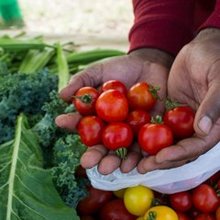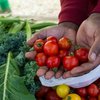0
Report
Community:
Welcome to the Food Research & Action Center’s winter issue of ResearchWire. This quarterly newsletter focuses on the latest research, reports, and resources from government agencies, academic researchers, think tanks, and elsewhere at the intersection of food insecurity, poverty, the federal nutrition programs, and health.
Authored by: Food Research & Action Center (FRAC)
Topics: Child welfare, Food insecurity, Funding, Health, Legislation & Policy, Low-income, Nutrition, Research, Youth
 Shared by Mica O'Brien
Shared by Mica O'Brien
Mica O'Brien posted a
on Feb 28, 2019
Food Research & Action Center (FRAC)
Welcome to the Food Research & Action Center’s winter issue of ResearchWire.
0
Video
Community:
Feb 20, 2019
With the active support of their residents, HABG converted a 34-passenger bus donated by Warren County Public Schools. The new mobile grocery store will offer fresh fruits and vegetables to families who currently live in a 'food desert' where the cost of eating healthy can be beyond their reach.
HAGB's new mobile grocery store will visit public housing developments and other low-income neighborhoods in Bowling Green to help residents lower their food costs by offering affordable groceries, including fresh produce grown at HAGB. More than 90 residents were surveyed and almost everyone said they would use the mobile grocery store at least once weekly.
Authored by: Housing Authority of Bowling Green
Topics: Food insecurity, Health, Housing, Low-income, Nutrition, Place-based
 Shared by Housing Is
Shared by Housing Is
Housing Is posted a
on Feb 28, 2019
Housing Authority of Bowling Green
With the active support of their residents, HABG converted a 34-passenger bus donated by Warren County Public Schools.
0
News Article
Community:
Feb 14, 2019
This week, the Food Research & Action Center in Washington, D.C., published its annual School Breakfast Scorecard, analyzing school breakfast participation throughout the country for the 2017-2018 school year. Here are six things to know from the report.
Authored by: Benita Gingerella for Food Service Director
Topics: Early childhood, Education, Food insecurity, Health, Nutrition, Youth
 Shared by Housing Is
Shared by Housing Is
Housing Is posted a
on Feb 25, 2019
Benita Gingerella for Food Service Director
This week, the Food Research & Action Center in Washington, D.C., published its annual School Breakfast Scorecard, analyzing school breakfast participation throughout the country for the 2017-2018 school year. Here are six things to know from the report.
0
Case study
Community:
The Addressing Healthcare’s Blindside in Albuquerque’s South Side (AHBASS) collaborative participated in the BUILD Health Challenge’s first cohort with the intention of “making the healthy choice, the easy choice” for community members. Now you can learn about their strategies, approaches, application of the BUILD principles, and outcomes in this new case study documenting their work. Follow along in this case study and see how this Albuquerque, NM, based team addressed chronic disease and self-management in their community. Together, they established a multi-sector collaboration that resulted in a referral tracking system and a Mobile Farmers Market. In addition, the team implemented the Healthy Here Wellness Referral Center, an integrated chronic disease management referral system to link clinics to community resources in order to improve health outcomes.
Authored by: The BUILD Health Challenge
Topics: Data sharing, Food insecurity, Health, Low-income, Nutrition, Partnerships
 Shared by Mica O'Brien
Shared by Mica O'Brien
Mica O'Brien posted a
on Feb 20, 2019
The BUILD Health Challenge
The Addressing Healthcare’s Blindside in Albuquerque’s South Side (AHBASS) collaborative participated in the BUILD Health Challenge’s first cohort with the intention of “making the healthy choice, the easy choice” for community members.
0
Report
Community:
Feb 13, 2019
More low-income children across the country are getting the nutrition they need to learn and thrive through the School Breakfast Program, according to the annual School Breakfast Scorecard, released by the Food Research & Action Center (FRAC).
Authored by: Food Research & Action Center (FRAC)
Topics: Child welfare, Food insecurity, Health, Low-income, Nutrition
 Shared by Housing Is
Shared by Housing Is
Housing Is posted a
on Feb 14, 2019
Food Research & Action Center (FRAC)
More low-income children across the country are getting the nutrition they need to learn and thrive through the School Breakfast Program, according to the annual School Breakfast Scorecard, released by the Food Research & Action Center (FRAC).
0
News Article
Community:
Jan 31, 2019
Square, the financial technology company known best for its slick iPad transactions, said Thursday it provided the funds to Austin’s Novo Dia Group to ensure that recipients of the Supplemental Nutrition Assistance Program (SNAP) can use their benefits at farmers markets without interruption. The investment also gives Square a window into the lucrative market for SNAP benefits, worth $63 billion annually.
Authored by: Jane Black for The Washington Post
Topics: Food insecurity, Low-income, Nutrition, Partnerships
 Shared by Mica O'Brien
Shared by Mica O'Brien
Mica O'Brien posted a
on Feb 11, 2019
Jane Black for The Washington Post
Square, the financial technology company known best for its slick iPad transactions, said Thursday it provided the funds to Austin’s Novo Dia Group to ensure that recipients of the Supplemental Nutrition Assistance Program (SNAP) can use their benefits at farmers markets without interruption.
0
News Article
Community:
Jan 29, 2019
Lack of transparency about SNAP benefits leaves students confused, unable to take advantage of resources
Authored by: Keagan Schlosser for The Badger Herald
Topics: Food insecurity, Low-income, Nutrition, Post-secondary, Research, Youth
 Shared by Housing Is
Shared by Housing Is
Housing Is posted a
on Feb 11, 2019
Keagan Schlosser for The Badger Herald
Lack of transparency about SNAP benefits leaves students confused, unable to take advantage of resources
0
News Article
Community:
Feb 3, 2019
As summer approaches, the West Virginia Department of Education is looking to partner with organizations in an effort to provide meals and activities for children while schools are out of session.
Authored by: Staff for Charleston Gazette-Mail
Topics: Education, Food insecurity, Low-income, Nutrition, Partnerships, Youth
 Shared by Housing Is
Shared by Housing Is
Housing Is posted a
on Feb 11, 2019
Staff for Charleston Gazette-Mail
As summer approaches, the West Virginia Department of Education is looking to partner with organizations in an effort to provide meals and activities for children while schools are out of session.
0
News Article
Community:
Feb 4, 2019
The U.S. territory needs to urgently tackle issues such as "widespread informal housing" and "the exorbitant amount of abandoned spaces" as it rebuilds after Hurricane Maria.
Authored by: Nicole Acevedo for NBC News
Topics: Community development, Food insecurity, Funding, Homelessness, Housing, Legislation & Policy, Nutrition, Safety, Stability, U.S. Territories
 Shared by Housing Is
Shared by Housing Is
Housing Is posted a
on Feb 4, 2019
Nicole Acevedo for NBC News
The U.S. territory needs to urgently tackle issues such as "widespread informal housing" and "the exorbitant amount of abandoned spaces" as it rebuilds after Hurricane Maria.
0
Policy Brief
Community:
Jan 30, 2019
Under the continuing resolution (CR) that provided the funding to reopen the government for three weeks, SNAP (food stamps) now is fully funded at least through March, even if the government shuts down again on February 15. Millions of families, however, face a longer-than-usual gap between their February and March benefits because the Agriculture Department worked with states to issue February benefits early during the shutdown, and that could further strain household budgets, the emergency food network, and other community resources.
Authored by: Dottie Rensbaum for The Center on Budget and Policy Priorities
Topics: Food insecurity, Funding, Health, Legislation & Policy, Low-income, Nutrition
 Shared by Mica O'Brien
Shared by Mica O'Brien
Mica O'Brien posted a
on Jan 30, 2019
Dottie Rensbaum for The Center on Budget and Policy Priorities
Under the continuing resolution (CR) that provided the funding to reopen the government for three weeks, SNAP (food stamps) now is fully funded at least through March, even if the government shuts down again on February 15.
0
Publication
Community:
Sep 1, 2018
The firearm, obesity, and opioid epidemics are among the most important public health crises of our time. Each epidemic has a complex etiology that challenges efforts at mitigation. From this, a central question arises for researchers, clinicians, and policymakers: How can we identify what matters most within a broad range of causal factors in these epidemics, and can we draw cross-epidemic inferences that will help inform our thinking?
Authored by: Sandro Galea for Milbank Memorial Fund
Topics: Food insecurity, Health, Low-income, Nutrition, Obesity, Partnerships, Safety, Substance abuse
 Shared by Mica O'Brien
Shared by Mica O'Brien
Mica O'Brien posted a
on Jan 24, 2019
Sandro Galea for Milbank Memorial Fund
The firearm, obesity, and opioid epidemics are among the most important public health crises of our time. Each epidemic has a complex etiology that challenges efforts at mitigation.
0
Publication
Community:
“Families are borrowing from already-limited food budgets to keep a roof over their heads”
Authored by: Opportunity Starts at Home
Topics: Food insecurity, Housing, Nutrition, Partnerships, Research
 Shared by Mica O'Brien
Shared by Mica O'Brien
Mica O'Brien posted a
on Jan 18, 2019
Opportunity Starts at Home
“Families are borrowing from already-limited food budgets to keep a roof over their heads”
0
Report
Community:
Jan 7, 2019
When the school day ends, far too many children return home to empty refrigerators and bare cupboards. The federal Afterschool Nutrition Programs provide healthy meals and snacks to children to ensure they are fed after school (and on weekends and during school holidays). According to FRAC’s latest Afterschool Suppers: A Snapshot of Participation report, the District of Columbia had the highest participation in the nation of children in the Afterschool Supper Program, with a 31.6 percent increase in participation between October 2016 and October 2017.
Authored by: Paige Pokorney for Food Research and Action Center (FRAC)
Topics: Child welfare, East Coast, Education, Food insecurity, Health, Low-income, Nutrition, Out-of-school time
 Shared by Housing Is
Shared by Housing Is
Housing Is posted a
on Jan 16, 2019
Paige Pokorney for Food Research and Action Center (FRAC)
When the school day ends, far too many children return home to empty refrigerators and bare cupboards. The federal Afterschool Nutrition Programs provide healthy meals and snacks to children to ensure they are fed after school (and on weekends and during school holidays).
0
News Article
Community:
Jan 8, 2019
Massachusetts Attorney General Maura Healey on Tuesday announced $3 million in grants to 13 community organizations that address things like housing, hunger and other societal factors that affect someone’s health.
Authored by: Shira Schoenberg for Mass Live
Topics: East Coast, Food insecurity, Health, Housing, Low-income, Nutrition, Partnerships, Preventative care
 Shared by Housing Is
Shared by Housing Is
Housing Is posted a
on Jan 16, 2019
Shira Schoenberg for Mass Live
Massachusetts Attorney General Maura Healey on Tuesday announced $3 million in grants to 13 community organizations that address things like housing, hunger and other societal factors that affect someone’s health.
0
News Article
Community:
Jan 6, 2019
These programs, available at 10 Wichita middle and high schools so far, include extended serving times in cafeterias, grab-and-go breakfasts from carts or kiosks, and “second-chance breakfast,” in which students are offered breakfast after homeroom or first period.
Authored by: Suzanne Perez Tobias for The Wichita Eagle
Topics: Child welfare, Education, Food insecurity, Health, Low-income, Midwest, Nutrition, Youth
 Shared by Housing Is
Shared by Housing Is
Housing Is posted a
on Jan 16, 2019
Suzanne Perez Tobias for The Wichita Eagle
These programs, available at 10 Wichita middle and high schools so far, include extended serving times in cafeterias, grab-and-go breakfasts from carts or kiosks, and “second-chance breakfast,” in which students are offered breakfast after homeroom or first period.
0
News Article
Community:
Jan 10, 2019
The federally funded School Breakfast Program is critical to addressing childhood hunger and food insecurity. While most schools participate in the program, many students are reluctant to eat breakfast in the cafeteria before school starts — the traditional service delivery model for school breakfast. To combat this, four of the top organizations in education, food insecurity and school nutrition came together to form Partners for Breakfast in the Classroom, with the support of the Walmart Foundation. The Partners, which include FRAC, the School Nutrition Foundation, the NEA Foundation and the National Association of Elementary School Principals, are working to address barriers to school breakfast consumption through an innovative solution: serving breakfast in the classroom.
Authored by: Etienne Melcher Pilbin for Medium
Topics: Child welfare, Education, Food insecurity, Health, Low-income, Nutrition
 Shared by Housing Is
Shared by Housing Is
Housing Is posted a
on Jan 16, 2019
Etienne Melcher Pilbin for Medium
The federally funded School Breakfast Program is critical to addressing childhood hunger and food insecurity.
0
Report
Community:
Jan 10, 2019
There isn't federal data on food insecurity among college students nationally, so the GAO reviewed 31 studies on the topic, showing that most concluded that over a third of college students don't always have enough to eat.
Authored by: Elissa Nadworny and Clare Lombardo for NPR
Topics: Education, Food insecurity, Health, Legislation & Policy, Low-income, Nutrition, Post-secondary, Research, Youth
 Shared by Housing Is
Shared by Housing Is
Housing Is posted a
on Jan 16, 2019
Elissa Nadworny and Clare Lombardo for NPR
There isn't federal data on food insecurity among college students nationally, so the GAO reviewed 31 studies on the topic, showing that most concluded that over a third of college students don't always have enough to eat.
0
News Article
Community:
Jan 8, 2019
SNAP is the first line of defense against senior hunger and frees up funds for health care and housing. This is important because one way struggling seniors often meet rising health care and other costs is by cutting back on or skipping meals — coping strategies that can exacerbate existing health problems. SNAP improves the health and well-being of seniors by reducing the negative health impacts of food insecurity, including diabetes, hypertension and depression.
Authored by: Joey Hentzler for The Topeka Capital-Journal
Topics: Depression, Disabilities, Food insecurity, Health, Housing, Low-income, Mental health, Midwest, Nutrition, Seniors
 Shared by Housing Is
Shared by Housing Is
Housing Is posted a
on Jan 16, 2019
Joey Hentzler for The Topeka Capital-Journal
SNAP is the first line of defense against senior hunger and frees up funds for health care and housing.
0
News Article
Community:
Jan 9, 2019
A new government report highlights just how pervasive the problem is.
Authored by: Adam Harris for The Atlantic
Topics: Food insecurity, Low-income, Nutrition, Post-secondary, Research
 Shared by Mica O'Brien
Shared by Mica O'Brien
Mica O'Brien posted a
on Jan 9, 2019
Adam Harris for The Atlantic
A new government report highlights just how pervasive the problem is.
0
News Article
Community:
Dec 20, 2018
The Trump Administration proposed a Supplemental Nutrition Assistance Program (SNAP) rule that would diminish food assistance for unemployed and underemployed people in areas with insufficient jobs; undo long-settled regulations; cynically attempt to end run Congress; and increase hunger and nutrition-related diseases.
Authored by: Emily Pickren for Food Research & Action Center
Topics: Food insecurity, Legislation & Policy, Low-income, Nutrition
 Shared by Mica O'Brien
Shared by Mica O'Brien
Mica O'Brien posted a
on Jan 7, 2019
Emily Pickren for Food Research & Action Center
The Trump Administration proposed a Supplemental Nutrition Assistance Program (SNAP) rule that would diminish food assistance for unemployed and underemployed people in areas with insufficient jobs; undo long-settled regulations; cynically attempt to end run Congress; and increase hunger and nutriti
0
Publication
Community:
Dec 20, 2018
The Trump Administration proposed draconian changes today in a key SNAP (food stamp) rule which, if implemented, would cut off basic food assistance for hundreds of thousands of the nation’s poorest and most destitute people. The Administration and House Republican leaders sought, but failed, to secure these changes as part of the farm bill that Congress just passed. The Administration is now proposing to implement, through executive action, what it failed to secure through legislation.
Authored by: Robert Greenstein for The Center on Budget and Policy Priorities
Topics: Food insecurity, Legislation & Policy, Low-income, Nutrition, Workforce development
 Shared by Housing Is
Shared by Housing Is
Housing Is posted a
on Dec 20, 2018
Robert Greenstein for The Center on Budget and Policy Priorities
The Trump Administration proposed draconian changes today in a key SNAP (food stamp) rule which, if implemented, would cut off basic food assistance for hundreds of thousands of the nation’s poorest and most destitute people.
0
News Article
Community:
Dec 10, 2018
As state and federal officials increasingly search for ways to curb rising health care costs, a decades-old idea is gaining traction: helping people with challenges that have nothing to do with medical care but everything to do with their health.
Authored by: Misty Williams for Roll Call
Topics: Cost effectiveness, Food insecurity, Health, Homelessness, Housing, Low-income, Medicaid / Medicare, Nutrition, Partnerships, Preventative care, Stability, Transportation
 Shared by Mica O'Brien
Shared by Mica O'Brien
Mica O'Brien posted a
on Dec 10, 2018
Misty Williams for Roll Call
As state and federal officials increasingly search for ways to curb rising health care costs, a decades-old idea is gaining traction: helping people with challenges that have nothing to do with medical care but everything to do with their health.
0
News Article
Community:
Sep 24, 2018
The Housing Authority of the County of Los Angeles (Calif.) developed an innovative community garden to provide access to affordable and fresh food as well as skills training and job opportunities.
Authored by: Ashanti Wright for Journal of Housing & Community Development
Topics: Community development, Food insecurity, Green, Health, Housing, Low-income, Nutrition, Place-based, Sustainability, Youth
 Shared by Mica O'Brien
Shared by Mica O'Brien
Mica O'Brien posted a
on Oct 30, 2018
Ashanti Wright for Journal of Housing & Community Development
The Housing Authority of the County of Los Angeles (Calif.) developed an innovative community garden to provide access to affordable and fresh food as well as skills training and job opportunities.
0
News Article
Community:
Oct 9, 2018
Sweet Water Foundation transformed four blocks in Englewood to cultivate community and help build skills, resources, and opportunities for residents.
Authored by: MacArthur Foundation
Topics: Community development, Family engagement, Food insecurity, Green, Health, Low-income, Midwest, Nutrition, Partnerships, Place-based, Sustainability, Youth
 Shared by Mica O'Brien
Shared by Mica O'Brien
Mica O'Brien posted a
on Oct 24, 2018
Sweet Water Foundation transformed four blocks in Englewood to cultivate community and help build skills, resources, and opportunities for residents.
0
Policy Brief
Community:
Oct 9, 2018
This brief highlights evidence on nutrition supports for families with young children and proposes a policy-focused research agenda designed to address knowledge gaps in two areas: (1) understanding disparities in participation in nutrition supports and (2) assessing strategies to increase access to nutrition supports and reduce nutrition disparities.
Authored by: Mathematica
Topics: Child welfare, Dual-generation, Early childhood, Food insecurity, Low-income, Nutrition, Research
 Shared by Mica O'Brien
Shared by Mica O'Brien
Mica O'Brien posted a
on Oct 22, 2018
This brief highlights evidence on nutrition supports for families with young children and proposes a policy-focused research agenda designed to address knowledge gaps in two areas: (1) understanding disparities in participation in nutrition supports and (2) assessing strategies to increase access to
 Shared by Housing Is
on Feb 28, 2019
Shared by Housing Is
on Feb 28, 2019
 Shared by Housing Is
on Feb 25, 2019
Shared by Housing Is
on Feb 25, 2019
 Shared by Housing Is
on Feb 14, 2019
Shared by Housing Is
on Feb 14, 2019
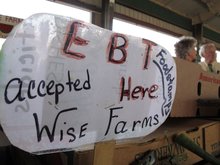

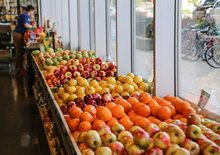
 Shared by Housing Is
on Feb 11, 2019
Shared by Housing Is
on Feb 11, 2019

 Shared by Housing Is
on Feb 11, 2019
Shared by Housing Is
on Feb 11, 2019
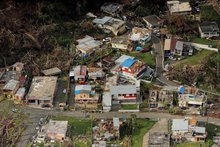
 Shared by Housing Is
on Feb 4, 2019
Shared by Housing Is
on Feb 4, 2019
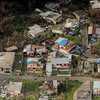

 Shared by Housing Is
on Jan 16, 2019
Shared by Housing Is
on Jan 16, 2019

 Shared by Housing Is
on Jan 16, 2019
Shared by Housing Is
on Jan 16, 2019

 Shared by Housing Is
on Jan 16, 2019
Shared by Housing Is
on Jan 16, 2019

 Shared by Housing Is
on Jan 16, 2019
Shared by Housing Is
on Jan 16, 2019

 Shared by Housing Is
on Jan 16, 2019
Shared by Housing Is
on Jan 16, 2019

 Shared by Housing Is
on Jan 16, 2019
Shared by Housing Is
on Jan 16, 2019


 Shared by Housing Is
on Dec 20, 2018
Shared by Housing Is
on Dec 20, 2018




